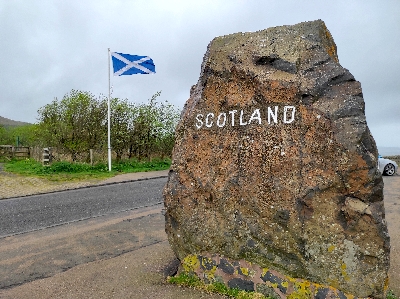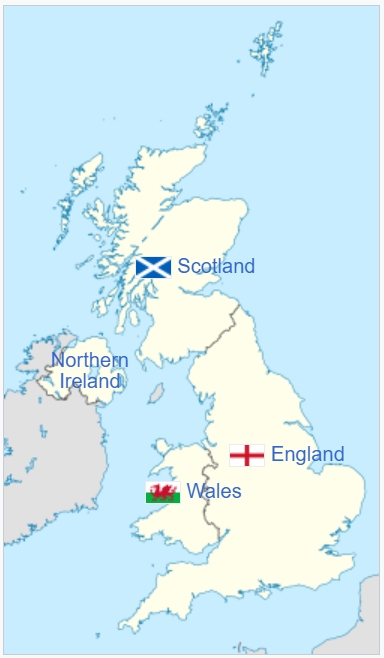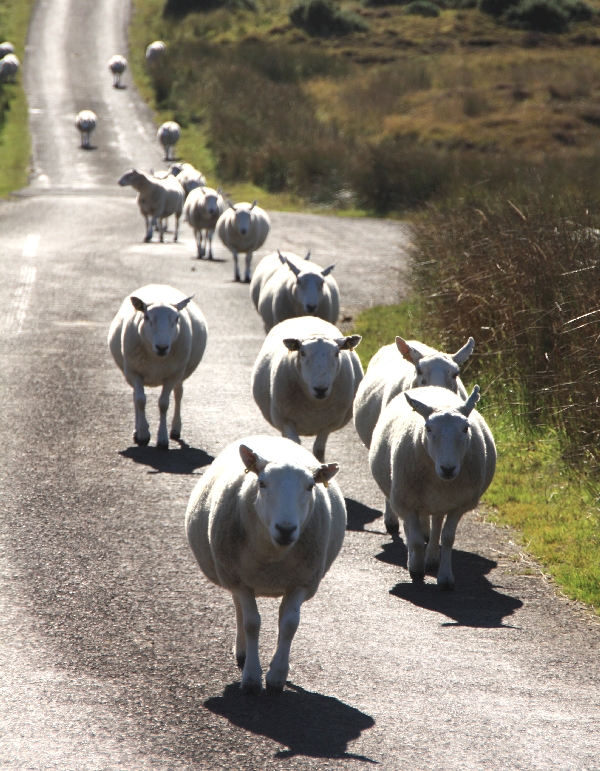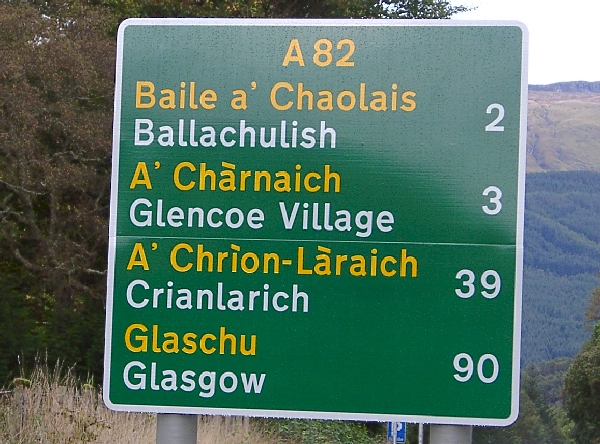Scotland, what is it?


First of all, it is perhaps important to note that Scotland is part of the United Kingdom (UK) and not of England. Even if people like to call the island England. But it might be healthier to know the difference when on holiday in Scotland.
Then there are also England, Wales and Northern Ireland in the UK. You can imagine it somewhat like the federal states in Germany and Scotland would then be Bavaria. But that's just in passing.
So, Scotland is the northern part of the United Kingdom. So far so good.

Scotland has around 5.5 million inhabitants who live in an area of around 78,000 km². So there are around 70 Scots living in one km². Just for comparison: in the whole of the UK there are around 270 people per km². If you know a little about the UK landscape, you can imagine how crowded the big cities are. In Germany there are “only” around 236 people per km². However, the population of sheep, at almost 85 animals per km² (6.6 million), is far higher than in Germany. So Scotland can be deserted. But you will find sheep almost everywhere.
The water is never far away either. There is nowhere in Scotland that is more than 60km from the coast. Lakes, i.e. the famous Scottish Lochs, can be found everywhere. However, there are fewer real forests. There are an awful lot of trees in Scotland. But these are mostly “breeding areas” of the timber industry.

The Scots are actually consistently cosmopolitan, helpful and friendly. At least if you don't act like an arrogant bastard or call them "English". But none of us will do that.
Maybe 1-2 more travel tips about Scotland that everyone probably knows... but you never know.
- “English” is understood everywhere. Not always spoken but understood. This is because the Scottish influence on the English language takes some getting used to and "Gaelic" is also spoken in some areas.
- The payment method of choice is the pound sterling. At least in principle. However, Scotland has 3 banks of its own that are also allowed to put their own money into circulation: The Scottish pound. It is equivalent to the pound sterling (not Stirling, that would be a city in Scotland) but is more common in Scotland than in the rest of the UK. From the rest of the UK you hear one or another horror story that the Scottish pound is not accepted. However, I cannot confirm this from my own experience. But maybe I was just lucky or the others were unlucky.
- You can also pay by credit card. Because you can pay for almost everything with a credit card. From the "30Pee" ("Pence" is rarely said. It usually just means "P") for the toilet, to the parking ticket to the holiday apartment. But you can also pay in cash almost everywhere. But remember, it's not a € country. You can therefore incur sensitive exchange rate or transaction fees if you don't do your research beforehand.
- It is probably also important that you need a passport and soon (no one knows exactly when) an ETA (Electronic Travel Authorization). It's something like a VISA light.
- Throughout the UK (including Scotland) we drive on the left. Not just every now and then or on certain days of the week. No ALWAYS. But it's really not difficult.
- With "driving on the left" comes another important point for drivers: the lights on the left-handed drive vehicle are illuminated incorrectly. Because where the sidewalk is illuminated in our country, in the UK there is oncoming traffic. So you either have to switch the headlight to "left-hand traffic" (often by pressing a button in the vehicle menu) or you have to cover it.
- Some towns in Scotland have low emission zones, the LEZ . You have to pay attention to the areas, permitted vehicles and fees.
- "Wild camping" is only permitted to non-motorized campers. As soon as a motor is involved (even a motorcycle has an engine) you have to spend the night in campsites or designated areas.
- You are also not allowed to "wild camp" with motorhomes, caravans, travelers or vehicles converted for sleeping purposes (yes, even a Mini with a converted sleeping area is no longer a normal vehicle in the UK, but a vehicle that falls into the campervan/caravan class). In addition, such vehicles are also denied parking spaces. Even some streets are closed to them or there is a “preferred direction”. And by “camping” the Scots also mean a chair in front of the car or an extended awning.
- Pets require vaccination with strict waiting days.